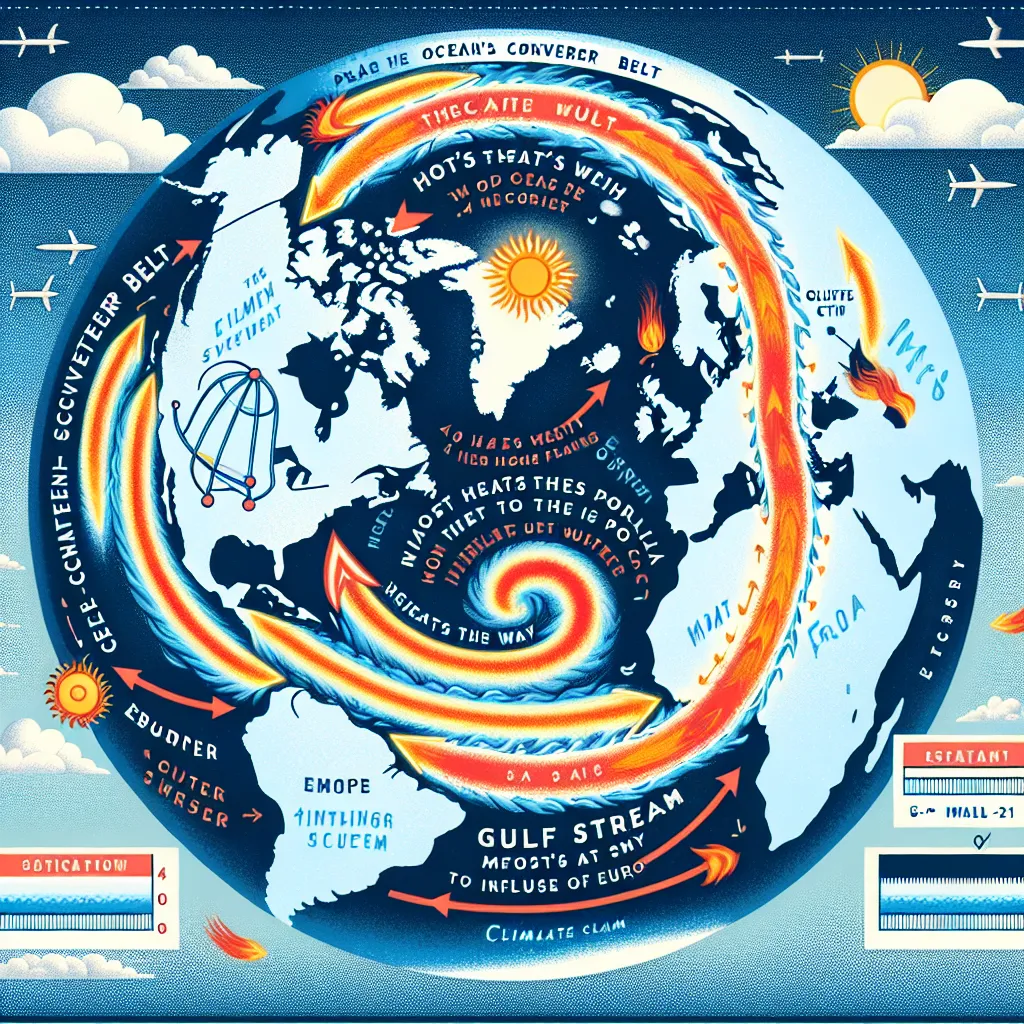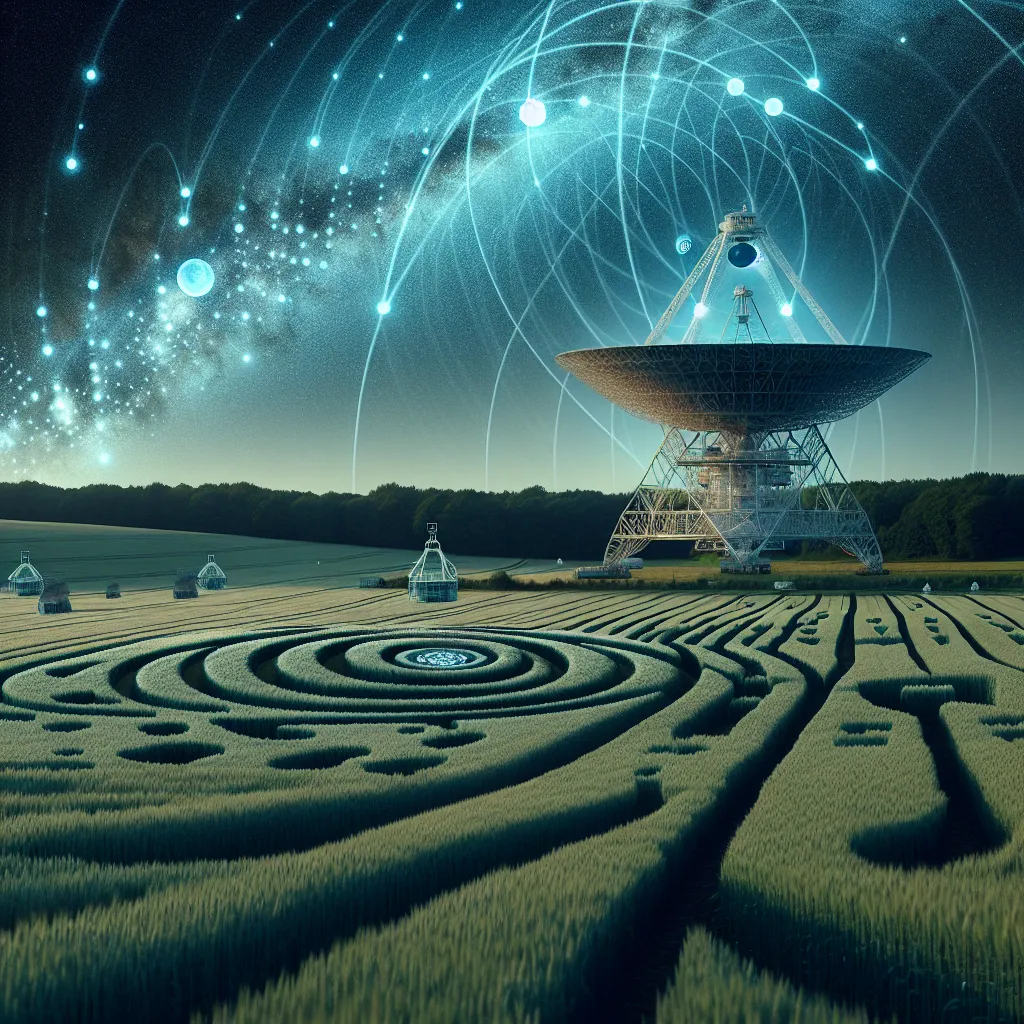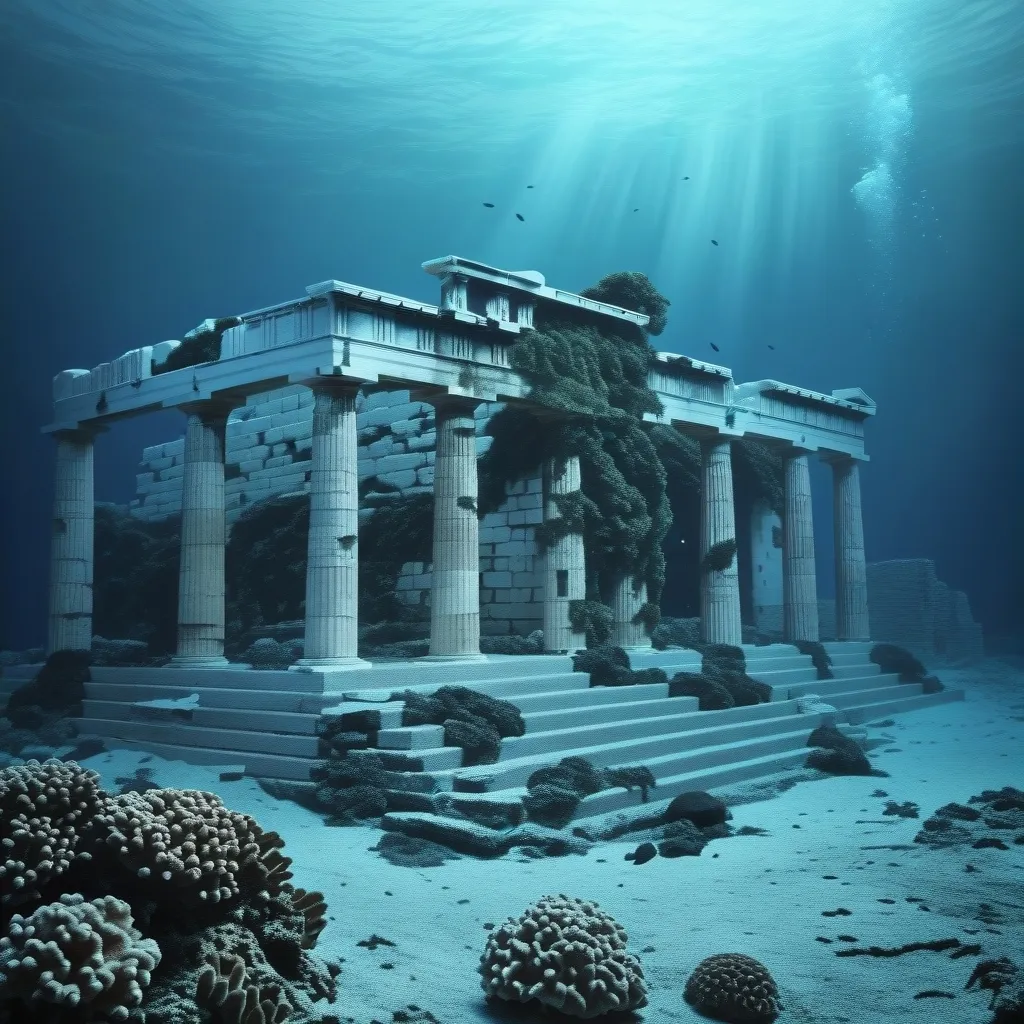The vast network of ocean currents plays a crucial role in shaping our weather and climate. Acting as a giant climate engine, these currents transport heat from the equator to the poles.
Among these currents, the ocean conveyor belt is especially vital. This system, also known as thermohaline circulation, involves a global exchange of water among four of the five major oceans. It’s driven by differences in water density, dictated by temperature and salt content. Warm water rises while cold, denser water sinks, influenced partly by wind but largely by these density differences.
One of the most significant components of this system is the Gulf Stream. Originating at the equator, where sun heat causes significant evaporation and higher salt content, the Gulf Stream plays a key role in Europe’s climate. Stretching 10,000 km, it moves at an impressive 2 m/s, carrying up to 100 million m³ of water per second towards Europe.
The journey of the Gulf Stream involves warm surface water being driven north-west into the Gulf of Mexico. Here, it heats up further, then moves towards Europe, where it splits into three paths. One flows south, another east into the Canary Current, and the third north as the North Atlantic Current, which releases heat and becomes denser, eventually sinking near Greenland, Norway, and Iceland.
This sinking creates powerful underwater waterfalls, the Chimneys, pulling in more water and fueling the Gulf Stream’s motion toward Europe. Not just water, the Gulf Stream also transports countless marine species and substantial warmth. Without this “heat pump,” Europe would be much colder, with temperatures dropping by five to ten degrees.
Recently, concerns have risen about climate change potentially halting the Gulf Stream. Melting polar caps could freshen the waters off Greenland, reducing salt content and density, disrupting the sinking process crucial for the North Atlantic Current.
While some scientists worry about these changes, others believe that climate change itself might balance out these effects. History shows that Earth’s climate naturally oscillates between ice ages and warm periods. During the last ice age, a massive meltwater flood significantly weakened the North Atlantic Current, plunging the northern hemisphere into freezing conditions.
The future impact of climate change on the global ocean conveyor belt remains uncertain. Yet, it’s evident that any shift in this complex system could lead to unpredictable changes in our climate, underscoring the need for continued study and understanding.






